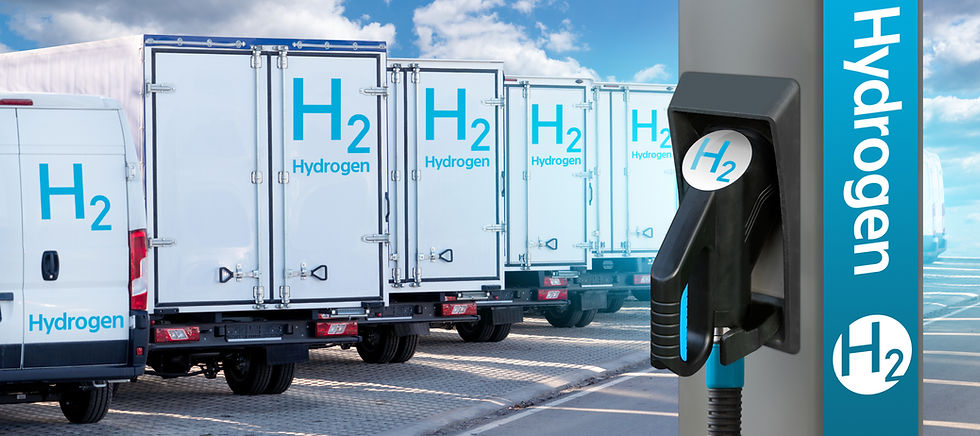Decarbonization by digitalization
-
The International Energy Agency (IEA) states in its Digitalization & Energy report that digital technologies can help reduce energy consumption and greenhouse gas emissions in various sectors, including buildings, transportation, and industry. The report highlights the potential of digitalization to enable new business models and optimize energy systems for greater efficiency and sustainability. (Source: IEA website)
-
The United Nations Framework Convention on Climate Change (UNFCCC) highlights the importance of digitalization in achieving the goals of the Paris Agreement, particularly in the areas of energy efficiency, renewable energy, and smart grids. The UNFCCC recognizes the potential of digital technologies to accelerate the transition to a low-carbon economy and reduce greenhouse gas emissions. (Source: UNFCCC website)
-
The European Union's Green Deal recognizes the role of digitalization in decarbonizing the economy, particularly in the areas of energy efficiency, renewable energy, and smart mobility. The Green Deal highlights the potential of digital technologies to enable new business models and optimize energy systems for greater sustainability and efficiency. (Source: European Commission website)
-
The World Economic Forum's report, Unlocking the Full Potential of Digitalization for Decarbonization, highlights the potential of digital technologies to reduce greenhouse gas emissions and accelerate the transition to a low-carbon economy. The report identifies various sectors where digitalization can drive decarbonization, including energy, transportation, buildings, and industry. (Source: World Economic Forum website)

Green energy value chain: electrification and hydrogen
-
The International Energy Agency (IEA) states in its latest report that hydrogen is expected to play a key role in achieving a sustainable and secure energy future, particularly in sectors such as transportation, industry, and power generation. (Source: IEA website)
-
The European Commission's Hydrogen Strategy for a Climate-Neutral Europe recognizes the potential of hydrogen in decarbonizing energy systems, stating that it can help achieve the EU's climate and energy objectives while also contributing to economic growth and job creation. (Source: European Commission website)
-
The US Department of Energy's Hydrogen and Fuel Cells Program highlights the benefits of hydrogen in reducing greenhouse gas emissions and improving energy security, and supports the development of a sustainable and efficient hydrogen economy. (Source: US Department of Energy website)
-
The International Renewable Energy Agency (IRENA) highlights the potential of hydrogen in decarbonizing the transportation sector, particularly in heavy-duty and long-haul vehicles, and supports the development of a hydrogen economy powered by renewable energy sources. (Source: IRENA website)

Decarbonization of land and maritime transportation
-
The Intergovernmental Panel on Climate Change (IPCC) states in its latest report that the decarbonization of transportation is essential to limiting global warming to 1.5°C above pre-industrial levels and avoiding the worst impacts of climate change. (Source: IPCC Sixth Assessment Report, Working Group III)
-
The International Maritime Organization (IMO) has set a target to reduce greenhouse gas emissions from shipping by at least 50% by 2050 compared to 2008 levels, recognizing the importance of decarbonizing the maritime transportation sector. (Source: IMO website)
-
The United Nations Environment Programme (UNEP) highlights the importance of decarbonizing land and maritime transportation in its Emissions Gap Report 2021, which calls for urgent action to close the gap between current greenhouse gas emissions and the reductions needed to limit global warming to 1.5°C. (Source: UNEP Emissions Gap Report 2021)
-
The European Union (EU) has set a target to reduce greenhouse gas emissions from the transportation sector by 90% by 2050 compared to 1990 levels, recognizing the importance of decarbonizing land and maritime transportation for achieving its climate goals. (Source: European Commission website)

There are numerous third-party assessments that underscore the pressing need for decarbonization strategies to avoid the worst impact of climate change. Here we cite just a few of those assessments, which compel any organization committed to reducing its climate impact, to take concrete action. Bloomcore is committed to serve as a catalyst, in bridging the gap between technology solution-providers and end-users, for the successful undertaking of decarbonization projects.
